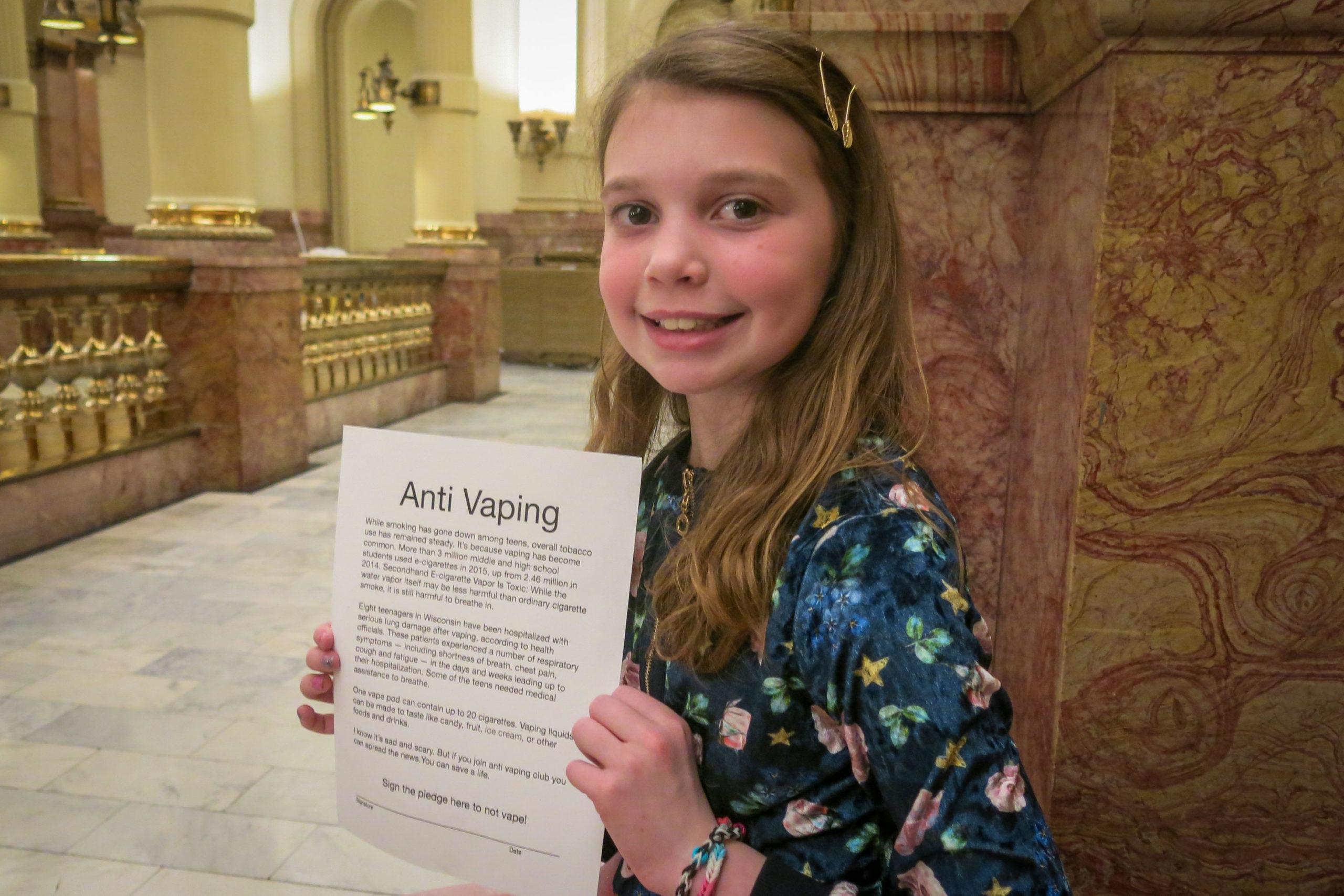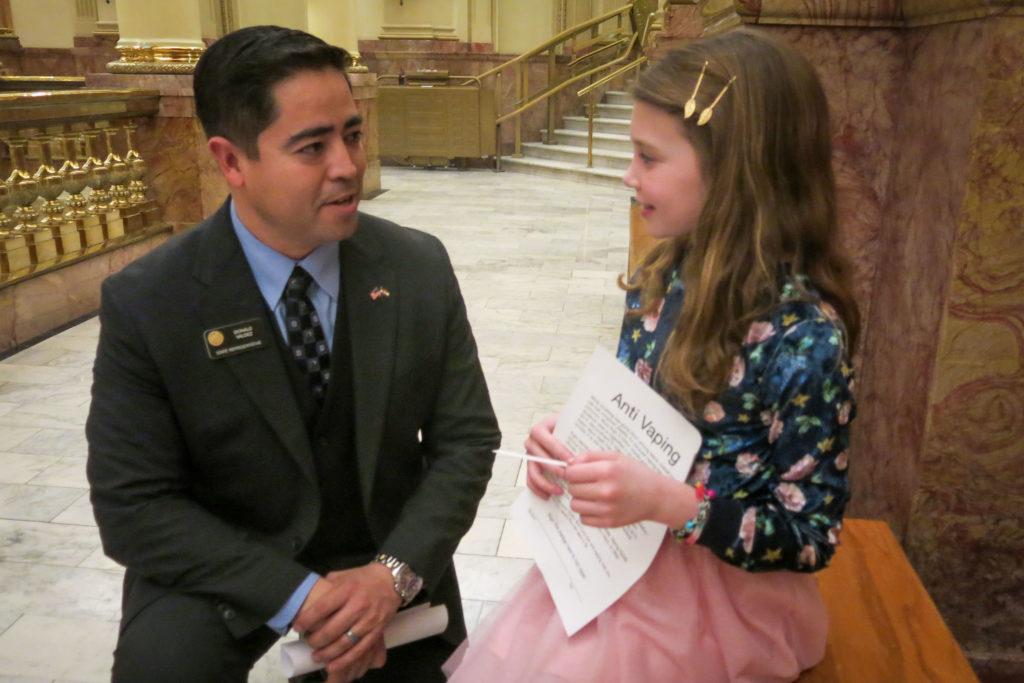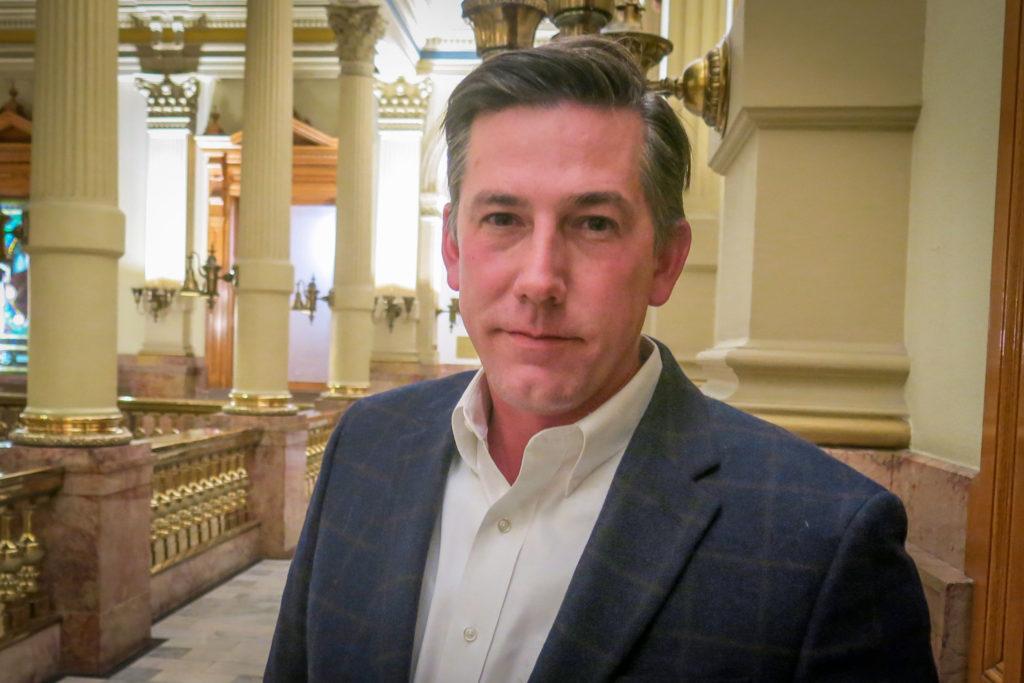
If you want to know how easy it is to buy high-level nicotine products online you only need to ask 9-year-old Audrey Rosen of Broomfield.
In front of Colorado lawmakers, Rosen, a 4th grader, explained how she could quickly navigate through a few pages on a laptop to one vape retailer website. Once there, she showed them, one can click on “e-liquids,” and then menthol, and soon choose from items like Rip-Tide Mint Disposable Vape Pod.
“It even asked me how much nicotine I want, how thoughtful,” Rosen told members of the House Health and Insurance Committee at the Colorado General Assembly. “All I have to do is enter my address, payment, fake birth date and the highly addictive, highly damaging nicotine product would come straight to my door.”
Rosen told them that tobacco companies have targeted young people.
“They know if they can get us addicted early and young, then they likely have a lifelong customer,” she said. “It's very easy for kids to get vaping products.”
Colorado lawmakers want to change that.

The hearing marked the first public discussion of HB 20-1001. The bill number 1001 is one that House lawmakers use to signal their top priority.
The measure has bipartisan support. It would tighten rules with a requirement that every nicotine retailer get a state license. That would allow for checks to make sure retailers are in compliance. The legislation would also hold retailers accountable for preventing underage sales and remove a criminal penalty for minors caught purchasing nicotine products underage.
And, for children like Rosen, it would close a loophole that allows minors to buy nicotine products online, and raise the minimum legal sales age for tobacco and nicotine products to 21.
Federal legislation was passed in December to raise the legal purchase age nationwide. The measure aligns state law, when it comes to the legal purchasing age, with the new federal law.

Some vape shop owners back raising the legal purchase age and licensing and do their best to keep vape products out of the hands of young people, including through age verification. One argued that vape products should only be allowed to be sold at age-restricted stores.
Others are also concerned the bill in its current form would add too much government regulation, in part because some local governments already also have tobacco licensing.
Grier Bailey, the leader of a group that represents thousands of convenience stores across Colorado worries the proposed legislation is inefficient and will lead to higher annual fees on tobacco retailers. He said the bill would raise millions from retailers for the state’s enforcement effort.
"And for the guy who has never had a problem, who has never sold one age-restricted product to a minor, it seems like the government continues to ask him to do something and pay more to continue to do something he's already doing responsibly," said Bailey, the executive director of the Colorado Wyoming Petroleum Marketers Association.
The health and insurance committee passed the bill on a 9 to 1 vote. It now heads to the House Finance Committee.








